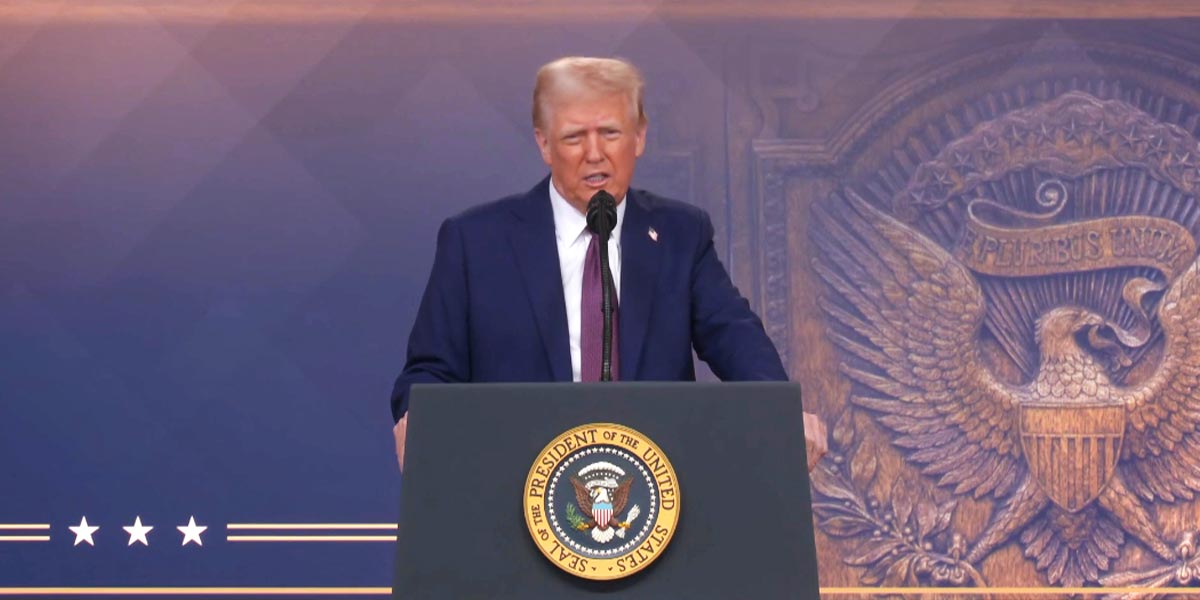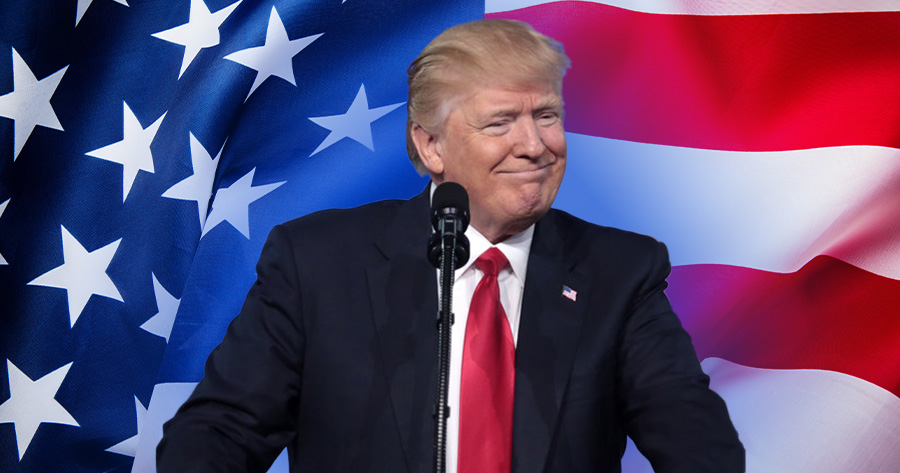At the World Economic Forum in Davos, Switzerland, on January 23, President Donald Trump addressed global leaders and business executives, promoting his agenda of boosting U.S. investments, reducing regulations, and implementing tariffs.
Trump highlighted the substantial investments secured for the United States since his election, mentioning significant commitments from companies like SoftBank, Oracle, and OpenAI. He also announced Saudi Arabia’s plans to invest heavily in the U.S., with aspirations to potentially increase the commitment to $1 trillion.
Regarding inflation in the US, Trump explained his executive order aimed at reducing high prices for Americans and expressed his intention to urge Saudi Arabia and OPEC to lower oil prices, suggesting that a decrease could potentially end the Russia-Ukraine conflict.
Turning to interest rates, the U.S. President urged for immediate rate reductions and emphasized the need for global decreases. This was consistent with the stance since his first term of presidency of pressuring the Federal Reserve, which had previously cut rates to tackle inflation. Meanwhile, as inflation showed signs of resurgence, markets predicted limited rate cuts in 2025, with the Federal Open Market Committee projecting only two reductions for this year.
Highlighting his administration’s focus on deregulation, Trump claimed to be leading the most extensive deregulation effort in history, proposing to eliminate ten old regulations for every new one, aiming to boost the economy and increase American families’ incomes.
Promoting domestic manufacturing, Trump reaffirmed his commitment to tariffs on companies producing abroad, which he argued would channel substantial revenue into the U.S. treasury and support economic growth. He stressed that under his leadership, the U.S. would be the premier location for job creation, factory construction, and company expansion.
As participants in the global forum discussed Trump’s trade policies prior to his speech, WTO Director-General Ngozi Okonjo-Iweala expressed concern that retaliatory tariffs reminiscent of the 1930s could lead to substantial global economic losses, potentially hitting double-digit GDP declines. Such an outcome, she warned, would be disastrous, disproportionately affecting poorer nations.
Okonjo-Iweala further cautioned that even if the world were to split into two separate trading blocs, accompanied by trade policy uncertainty, global GDP could shrink by 6.4% in the long term, an amount equivalent to the combined economies of Japan and Korea.
However, during a panel on January 22, Okonjo-Iweala noted that while there was apprehension over the likelihood of executive orders imposing steep tariffs, so far there had been calls for comprehensive studies and assessments of trade partnerships and agreements, which she saw as somewhat positive.
Regarding trades with the European Union
Earlier in the week, European Union President Ursula von der Leyen spoke about the need to establish a more equitable trade relationship with partners like China, emphasizing fairness and reciprocity. She highlighted that strengthening ties with global partners is crucial for economic reasons and serves as Europe’s answer to increasing global competition. Her comments underscored the EU’s desire for enhanced cooperation with willing partners.
Meanwhile, the EU confronts potential tariff threats from President Donald Trump, who criticized the bloc on Thursday for unfair trade practices towards the U.S. He pointed out disparities such as existing taxes and barriers that affect U.S. agricultural and automotive exports while Europe benefits significantly from exporting cars to the U.S. Trump expressed dissatisfaction with the trade deficits between the U.S. and the EU, indicating plans to address these imbalances.
Von der Leyen countered by stating that Europe aims to engage with the U.S. to discuss mutual interests and is prepared to negotiate. While maintaining their principles, the EU intends to approach these discussions pragmatically.
Regarding the Panama Canal
Although President Donald Trump did not address the Panama Canal in his speech at Davos, his earlier remarks have drawn attention from some attendees. Trump’s statement earlier this week about the U.S. reclaiming the canal from China, asserting that it had been given to Panama, didn’t unsettle Panamanian officials.
Panama’s President, Jose Raul Mulino, indicated that the nation remains focused on its progress and isn’t perturbed by such declarations. He highlighted Panama’s longstanding collaborative relationship with the United States, emphasizing the mutual benefits derived from the canal’s operations.
Mulino pointed out that legally, the idea of the U.S. reclaiming the canal is implausible. He acknowledged the misinformation but suggested that this situation could foster opportunities for Panama to collaborate with the U.S. on other interests.





